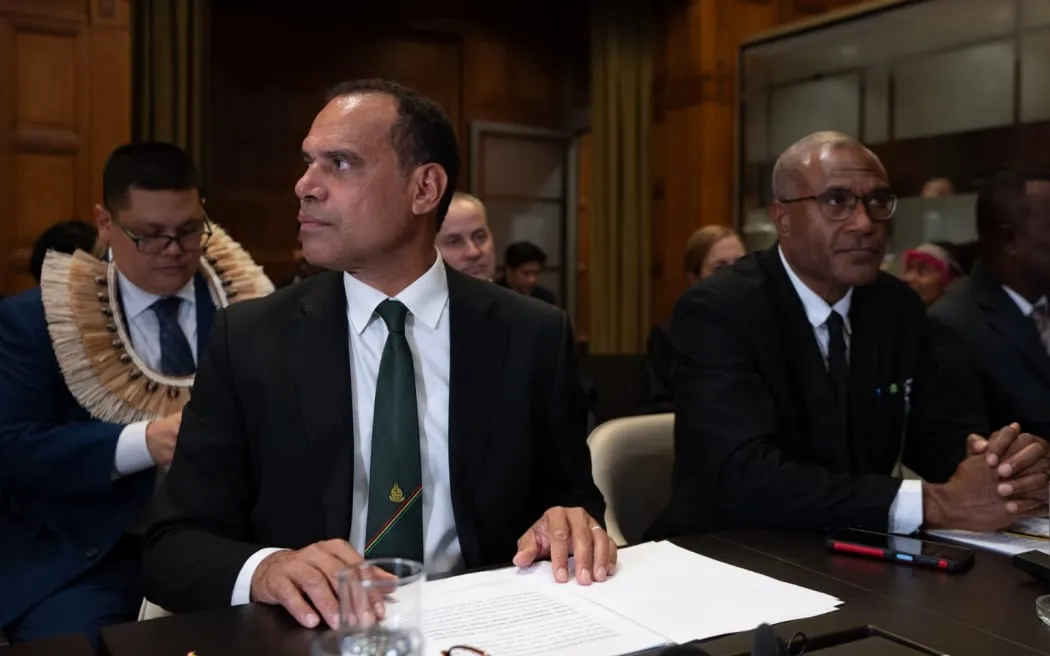Vanuatu’s Climate Envoy Slams Australia and World’s Largest Greenhouse Gas Emitters at ICJ
The International Court of Justice (ICJ) has been called upon to address the growing concern of climate change, with Vanuatu’s envoy slamming Australia and the world’s largest greenhouse gas emitters for their role in exacerbating the crisis.
**Global Inaction**
Vanuatu’s Climate Envoy, Kaven Senen, has taken a strong stance against the major players responsible for the growing problem. “The fact that the world’s top greenhouse gas emitters are not taking sufficient action to address climate change is an embarrassment,” Senen said in a statement.
Australia has been criticized for its lack of commitment to reducing emissions and adapting to the impacts of climate change. “We know that a legal opinion is not legally binding but we do know a legal opinion from the International Court of Justice has a very strong moral weighting,” Coral Pasisi, Director of Climate Change at the Pacific Community (SPC), said during an online press conference.
**Pacific Islands’ Perspective**
The Pacific Islands are among the most vulnerable regions to climate change. Rising sea levels, increased extreme weather events, and changing ecosystems are just some of the impacts being felt in the region. “As judges of the world court you possess the power to help us course correct and renew hope in humanity’s ability to address the greatest challenge of our time,” said Cynthia Houniuhi, President of Pacific Islands Students Fighting Climate Change.
The group which initiated the campaign stated that UN negotiations had been hijacked by major fossil fuel producers. “As the world’s top greenhouse gas emitters are not taking sufficient action to address climate change, it is an injustice to the people of Vanuatu and other vulnerable nations,” Houniuhi said.
**World’s Largest Greenhouse Gas Emitters**
The largest greenhouse gas emitters include China, the United States, the European Union, Russia, Japan, India, South Korea, Canada, Australia, Iran, Turkey, Saudi Arabia, Germany, France, and the United Kingdom.
While some of these nations have made commitments to reduce their emissions, others continue to rely heavily on fossil fuels. The impact is felt across the globe, from rising sea levels to devastating wildfires and extreme weather events.
**Conclusion**
The ICJ’s role in addressing climate change has been called into question by Vanuatu’s envoy and other Pacific Island nations. While the court’s decisions are not legally binding, they do carry significant moral weight. As the world grapples with the challenges of climate change, it is clear that collective action is needed to address this global crisis.
In order to course correct and renew hope in humanity’s ability to address climate change, it is imperative that major greenhouse gas emitters take sufficient action to reduce their emissions and adapt to the impacts of climate change. The ICJ’s role in promoting justice and equity will be crucial in driving meaningful action on this critical issue.
—
**Additional Information:**
– Pacific Islands Students Fighting Climate Change – president Cynthia Houniuhi said UN negotiations had been hijacked by major fossil fuel producers.
– Coral Pasisi, Director of Climate Change at the Pacific Community (SPC), stated that legal opinions from the ICJ can serve as a catalyst for international law’s being developed to correct injustices.

0 Comments